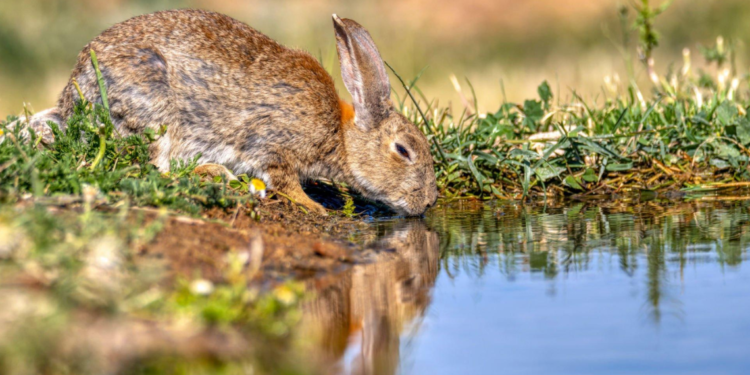Rabbits, adorable and lovable pets, require proper care and attention to ensure their health and well-being. As responsible rabbit owners, it’s crucial to provide them with a suitable diet and hydration. Water, in particular, is essential for a rabbit’s overall health and bodily functions. While tap water is commonly used, some pet owners wonder whether mineral water can be a safe alternative. In this article, we will explore the topic of whether mineral water is safe for rabbits to drink and provide insights into suitable water options for these furry companions.
Introduction
When it comes to the well-being of our pets, it’s natural to seek the best for them, including their water source. Water plays a vital role in maintaining a rabbit’s health, aiding digestion, regulating body temperature, and ensuring proper hydration. However, not all types of water are suitable for rabbits. In this article, we will focus on mineral water and its compatibility with a rabbit’s needs.
What is Mineral Water?
Definition
Mineral water is a type of water that naturally contains minerals and other trace elements. It is sourced from underground reservoirs or springs and is often marketed for its perceived health benefits. The mineral content in water can vary depending on its source, giving rise to different types and brands of mineral water available in the market.
Composition
Mineral water typically contains various minerals, such as calcium, magnesium, potassium, and bicarbonate. These minerals are naturally present in the water due to the geological properties of the water source. While these minerals can be beneficial for humans, the impact on rabbits may differ due to their unique physiology.
Can Rabbits Drink Mineral Water?
Water Requirements for Rabbits
Before delving into the topic of mineral water, it’s important to understand a rabbit’s water requirements. Rabbits need access to fresh and clean water at all times. On average, a rabbit should consume approximately 50-150 millilitres of water per kilogram of body weight per day. Water is vital for digestion, maintaining hydration, and ensuring healthy organ function.
Risks of Giving Mineral Water to Rabbits
While mineral water may seem like a viable option, it is generally not recommended for rabbits. The mineral content in mineral water can vary significantly, and some minerals may not be suitable for rabbits in large quantities. Excessive minerals, especially those like sodium or sulfur, can lead to health issues such as urinary problems or imbalances in a rabbit’s delicate digestive system. Additionally, the carbonation present in some mineral waters can cause discomfort and bloating in rabbits.
Safe Alternatives for Rabbits

Given the potential risks associated with mineral water, it is advisable to explore safer alternatives for providing hydration to your rabbit. Here are a few options:
- Fresh Water
Fresh water is the most reliable and easily accessible option for rabbits. It is important to ensure the water is clean, free from contaminants and changed regularly to maintain its freshness. Tap water can be used if it is of good quality and safe for consumption.
- Filtered Water
If you are concerned about the quality of your tap water, using a water filter can help remove impurities and provide cleaner water for your rabbit. This can be a suitable option for areas with water quality concerns.
- Bottled Rabbit-Safe Water
Some pet stores offer bottled water specifically designed for rabbits and small pets. These bottled options are formulated to be safe and healthy for rabbits to consume. They are often free from additives or excessive minerals that could potentially harm your furry friend.
How to Provide Water for Rabbits
Ensuring that rabbits have access to water is as important as the type of water they consume. Here are two common methods of providing water for rabbits:
Water Dispenser
A water dispenser, such as a sipper bottle, can be attached to the rabbit’s enclosure. This allows them to drink water by licking a small metal spout. Water dispensers help keep the water clean and prevent spillage.
Bowl
A water bowl is another option for providing water to rabbits. Choose a sturdy, shallow bowl that cannot be easily tipped over. Keep in mind that the water bowl may require frequent monitoring and refilling to ensure its cleanliness and freshness.
Conclusion
While mineral water may have its benefits for humans, it is not recommended as the primary water source for rabbits. The mineral content in mineral water can vary and may not align with a rabbit’s specific dietary needs. Instead, opt for freshwater or rabbit-safe bottled water to ensure your furry companion stays hydrated and healthy. Remember, water is essential for rabbits’ overall well-being, so prioritize providing them with a clean and easily accessible water source.
FAQs
Q1. Can rabbits drink tap water?
Yes, rabbits can drink tap water if it is of good quality and safe for human consumption. Ensure the water is clean, free from contaminants, and changed regularly to maintain its freshness.
Q2. What are the risks of giving mineral water to rabbits?
Mineral water can contain excessive minerals, such as sodium or sulfur, which may lead to health issues in rabbits. Carbonation present in some mineral waters can also cause discomfort and bloating in rabbits.
Q3. Is bottled water safe for rabbits?
Bottled water specifically designed for rabbits and small pets can be a safe option. These bottled options are formulated to be free from additives or excessive minerals that could potentially harm rabbits.
Q4. How much water should a rabbit drink per day?
On average, a rabbit should consume approximately 50-150 millilitres of water per kilogram of body weight per day. Ensure they have access to fresh and clean water at all times.
Q5. What are the suitable alternatives to mineral water for rabbits?
Fresh water and rabbit-safe bottled water are the most suitable alternatives to mineral water for rabbits. Ensure the water is clean, fresh, and free from contaminants.




